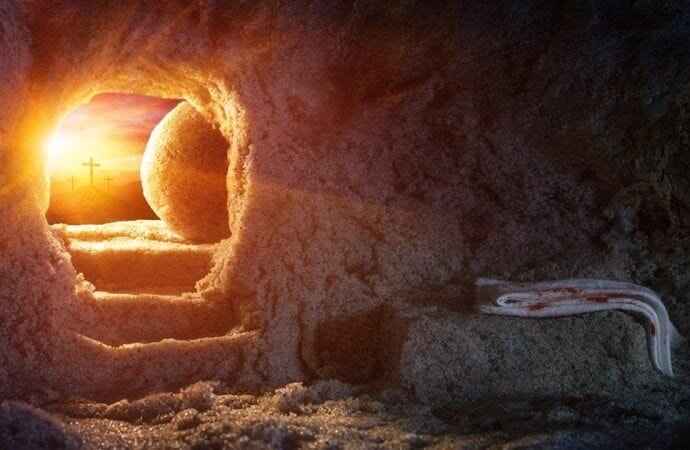One week before writing this article, three people who were important in my life passed away. Fr. Bob Staes, OP, a classmate from my Dominican Novitiate, Fr. Tom Murphy, OSFS, a confrere who was a great support to me when I transferred to the Oblates, and Gloria Della Cease, a friend and former parishioner. You can imagine how these deaths happening so close together, touched me. But while I am sad that they no longer walk this earth with us, I rejoice that they will see God face to face.
Death is part of life. I was taught many years ago: life is terminal. From the moment we are born, we begin to die. Death has been a part of my life from a young age. I was raised by my mother and grandfather. Grandpa was sixty-six when I was born and was one of sixteen children, so I spent many an evening in funeral homes as a young child. Seeing a relative lying in their coffin and spending time visiting at the funeral home was a normal part of growing up for me. At one point I looked up to the ceiling and asked God: “What is it like when someone dies? Are we aware of the coffin closed over us? Do we look down and see the love present in those gathered in grief and sadness? Please God, help me know. I’m afraid.”
Then, when I was thirteen, my mother died at age forty, only six weeks after feeling sick. A fast spreading cancer was the cause. This was my most significant death experience. I went to school to sing for Mass like I did every morning. When I passed the principal’s office, Sr. Julianne said to me: “Paul, why are you here?” I answered: “There’s nothing for me to do at home, so I thought I’d keep busy.” She said, “Oh yes, there is. Your grandfather needs you. Go to be with him.”
She was right. I’m glad I did go home because it helped me enter into Grandpa’s grief and he into mine. He kept saying: “It’s not supposed to be like this. Parents don’t bury their children.” A new bond developed out of our shared sadness and our belief in eternal life. We shared sadness and hope. Pope Francis spoke about this: "The commemoration of the dead fills us both with a feeling of sadness, but also of hope. A cemetery is sad because it reminds us of death, but in this sadness, we bring flowers as a sign of hope. And so sadness is mixed with hope."
For many of us sadness and hope are part of nature at this time of year. My confrere, Joseph McDaniel, OSFS, wrote about that reality a few weeks ago. The beauty of leaves on the tree during Fall gives way to emptiness and barrenness when they fall, which give hope again when new leaves grow in Spring. Dying and rising, sadness and hope, are part of the life cycle. Yes, life is terminal, but we pray in the Mass Preface for Christian Death: “Life is changed, not ended, and when this earthly dwelling turns to dust, an eternal dwelling is made ready for them in heaven.”
We practice dying in the various ways throughout our lives. We let go of a dream and face life as it is. By letting go we can find new possibilities. We let go of a relationship and become free to enter into new relationships or deepen the goodness of longstanding ones. We let go of a job and can often find another job. It may only come with patience, another dying to rise.
Letting go is often fearful. It leads us into the unknown, but that is part of the process. Think of it like birth. We die to the comforts of life in the womb where we are fed, warm, cared for, even communicated with from outside the womb. Then the time to be born comes. It is called labor for a reason. It is not an easy process. We are slapped to cry in order to breathe, dying and rising. We are cold at first. But when we are placed on our mother’s chest, near her familiar heartbeat, we hear familiar voices now unmuffled and are comforted. Death is similar, we enter the unknown and are promised life.
In a Lenten Sermons of 1622, St. Francis de Sales said: “As our life is, so will be our death. To sum up this point, let us say that the general rule for a good death is to lead a good life. It is true that even while living well you will fear death, but your fear will be holy and tranquil, relying on the merits of our Lord’s Passion…” So, live well. Accompany people when they enter this part of life’s journey. Live well and the sadness of death will give way to the brightness of immortality. Live well and fear will give way to hope, and life will be changed, not ended.
May God be praised.
Paul H. Colloton, OSFS




